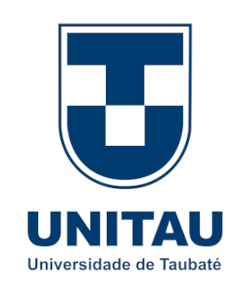USO DE SOFTWARES COMO TÉCNICA PARA TREINAMENTOS OU DESENVOLVIMENTO DE PROJETOS OFFLINE
Keywords:
Automação Industrial, Simulação, OfflineAbstract
With the evolution of computing, advancement of technology and the need to commission a real process, simulation software was created that could, through computational models, represent a behavior that corresponded to a real situation. In the industrial automation area, it is common for the main equipment and device manufacturers to develop their own simulators for testing and commissioning by their customers. Such simulations allow whoever is developing an application to have a view of how the system will behave when applied and, with that, to make changes before being placed in a real application. Thus, it is clear that simulation is a great tool to aid planning, helping to identify programming errors, facilitating project changes and correcting errors in order to become a more reliable project when applied in the field. . Objectives: This article aimed to create an exemplified application of an industrial robotic process, where through simulation tools, it was possible to develop and validate. The use of simulators also proves to be a great tool for those who want to improve or acquire experience in a certain equipment. Methodology: Was used a virtual environment that simulates the behavior of a 6-axis robot and that interacts with PLC programming software and also with a supervisory system software. Results and conclusions: it was found that it is possible through software to simulate equipment and to be able to create and validate projects, both for those who want to develop in programming and for those who intend to carry out a project for a real company.
Downloads
Metrics
References
ANTUNES, João Pedro Moreira Dias. Programação de robôs industriais em operações de maquinagem. 2015.
CARNEIRO, Amanda Cristina et al. Uso de Ambiente Virtual para Ensino de Programação de Controladores Lógicos. Revista da META, 2018.
DA ROCHA SEABRA, Pedro Filipe. Conceção de um robô virtual programável para ensino e treino de soluções integradas de automação. 2020.
FREITAS, Eduardo Ferreira de; FONSECA, Marcos de Oliveira; MARQUES, Rodrigo Madeira. Utilização de técnicas de simulação para desenvolvimento, testes e validação de projetos de Automação. Tecnologia em Metalurgia, Materiais e Mineração, v. 4, n. 1, p. 18-23, 2013.
GÁLVEZ, Daniel et al. Propuesta de Implementación de un Sistema SCADA en una Máquina Empaquetadora Mediante el Uso del Software InduSoft en una Empresa de Alimentos. 2022. Tese de Doutorado. ESPOL. FIEC.
KAZIMIROV, A. Education at University and Industry 4.0. 2018 Global Smart Industry Conference, 2018.
MAIA, José da Silva et al. Ferramenta para aprendizagem de automação e controle discreto: controlador lógico programável (PLC) na modalidade e-learning. 2002.
MARAKOVA, Irina; SHUBENKOVA, Ksenia; BAGATEEVA, Angelina; PASHKEVICH, Anton. Digitalization of Education as a New Destination of E-Learning. 60th International Symposium ELMAR, 2018.
MARTIN, J.; BOHUSLAVA, J. Augmented Reality as an Instrument for Teaching Industrial Automation. Proceedings of the 29th International Conference 2018 Cybernetics and Informatics, 2018.
MARYADI, T.; PRAMONO, H.; HATMOJO, Y.; PRIANTO, E.; SUNOMO. Development of Human Machine Interface (HMI) Training Kit as A Learning Media for Industrial Automation Engineering Practical Courses. Journal of Phisics: Conference Series, 2020.
MORALEZ-MENENDEZ, Ruben; RAMÍREZ-MENDOZA, Ricardo; GUEVARA, Antonio Jr Vallejo. Virtual Remote Labs for Automation Teaching: a Cost Effective Approach. Science Direct, v. 52, n. 9, p. 266-271, 2019.
REDEL, R.; HOUNSELL, M. da S. Implementação de simuladores de robôs com o uso da tecnologia de realidade virtual. In: IV Congresso Brasileiro de Computação, Itajaí–SC. IV CBCOMP. 2004. p. 398-401.
ROSSITER, J.; POPE, S.; JONES, B.; HEDENGREN, J. Evaluation and demonstration of take home laboratory kit. Science Direct IFAC Papers Online, n. 52, v. 9, p. 56-61, 2019.
SANTOS, Beatriz Moreira. Revisão, validação e demonstração de um robô virtual programável para ensino e treino de soluções integradas de automação. 2020.
Downloads
Published
How to Cite
Issue
Section
License
Copyright (c) 2023 Gabriel Teixeira de Andrade, Orlando Rosa Junior, José Antônio Peixoto Cunha

This work is licensed under a Creative Commons Attribution-NonCommercial-NoDerivatives 4.0 International License.
A submissão de originais para este periódico implica na transferência, pelos autores, dos direitos de publicação impressa e digital. Os direitos autorais para os artigos publicados são do autor, com direitos do periódico sobre a primeira publicação. Os autores somente poderão utilizar os mesmos resultados em outras publicações indicando claramente este periódico como o meio da publicação original.




